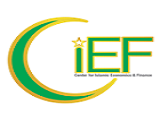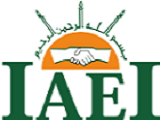Islamic Philanthropy : Waqf Empowerment of Madina Minimarket In Tasikmalaya - Indonesia
Abstract
The purpose of this study was to determine the implementation of productive waqf economic empowerment in the form of a minimarket in Purbaratu, Tasikmalaya City. Grouded research used to try to develop a concept through empirical exploration of the economic empowerment of productive endowments carried out by the City of Tasikmalaya Baznas so as to produce a conceptual description of the economic empowerment of productive waqf. The results showed that the Madina minimarket is an implementation of empowering productive waqf through business activities with the concept of the people for the people (social enterprise). Madina Minimarket is built on waqf land given by waqif to the Baznas Tasikmalaya City is used as fixed capital for minimarkets while working capital is obtained from investors. Every month, the profit earned by Madina minimarket is used to pay the minimarket employees and distributed to all mosques in Purbaratu District neighborhood in the form of shopping vouchers for mosque needs.
Keywords : IslamicPhilanthropy, Empowerment, Waqf
Keywords
Full Text:
PDFReferences
Ahmed, Habib. (2007), “Waqf-Based Microfinance: Realizing The Social Role of Islamic Finance”, International Seminar on Integrating Awqaf in the Islamic Financial Sector, Singapore, Jeddah, pp. 1-22
Aimi, Noor Bt Mohd Puad, at all, (2014), “Issues and Challenges of Waqf Instrument : A Case Study in MAIS”, E-Proceedings of the Conference on Management and Muamalah (CoMM), pp. 116-127
Amuda, Yusuff Jelili, (2013),“Empowerment of Nigerian Muslim Households through Waqf, Zakat, Sadaqat and Public Funding”, International Journal of Trade, Economics and Finance, Vol. 4, No. 6, pp. 419-424
Ayub, Hasan. (2006), Fiqh Muamalah Maliyah fil Islam, Kairo : Dar as Salam.
Az Zuhaily,Wahbah. (1985), Fiqh Islam wa Adillatuhu, Damaskus : Dar al-Fikr.
Bayinah, Ai Nur. (2012),“Exploring and Empwering Waqf Invesment Toward an acceleration of Economic development in Indonesia”, Conference Proceedings, Annual International Conference on Islamic Studies (AICIS XII), Surabaya – Indonesia, pp. 2681-2707
Directorate General of Islamic Community Guidance. Ministry of Religion of the Republic of Indonesia. (2018).
Ismail, Muhammad bin. (1995),Subulus Salam Syarah Bulughul Marom Min Jam'i Asillatil Ahkam, Muhaqqiq: Hazim Ali Bahjat al-Qodhi, Riyadh-Arab Saudi: Maktabah Nazar Musthofa Al-Baz.
Praja, Juhaya S., Muzarie Mukhlisin. (2009),Islamic Economics Institution of Waqf, Cirebon: STAIC Press.
Purnamasari, F. (2020). Competitive Advantage Towards Creative Economy in Islam. Journal of Islamic Business and Economic Review, 3(1).
Ramli, Asharaf Mohd; Abdullaah Jalil. (2013), “Corporate Waqf Model and Its Distinctive Features: The Future of Islamic Philanthtopy”, Paper presented at the World Universities Islamic Philanthrophy Conference, Menara Bank Islam, Kuala Lumpur, pp. 1-14
Rusydiana, Aam Slamet, at. all. (2019), “Manakah Prioritas Sektor Pengembangan Wakaf di Indonesia?”, Al-Masraf: Jurnal Lembaga Keuangan dan Perbankan, Vol.4, No.1, pp. 7-16.
Saad, Norma Md, et. al. (2017),“Managing Corporate Waqf in Malaysia : Perspectives of Selected SEDCs and SIRCs”, Shariah Journal, Vol. 25, No. I, pp. 91-116
Shirazi, Nasim Shah.(2014), “Integrating Zakāt and Waqf into the Poverty Reduction Strategy of the IDB Member Countries”, Islamic Economic Studies Vol. 22, No. 1, pp: 79-108
Suryanto, Asep, at.all. (2016), " Optimalisasi Fungsi dan Potensi Masjid: Model Pemberdayaan Ekonomi Masyarakat Berbasis Masjid di Kota Tasikmalaya." Iqtishoduna: Jurnal Ekonomi Islam, Vol. 5, No. 2, pp. 1-27.
Yusuf, Muhammad. (2009),Pemberdayaan Wakaf Produktif Untuk Pemberdayaan Ekonomi Umat, Semarang: Badan Wakaf Nusantara.
DOI: http://dx.doi.org/10.24042/febi.v5i2.5315
Refbacks
- There are currently no refbacks.
Copyright (c) 2020
Ikonomika : Jurnal Ekonomi dan Bisnis Islam is a Journal of Islamic Economics and Business, Published by the Faculty of Islamic Economics and Business at UIN Raden Intan Lampung Indonesia. This work is licensed under a Creative Commons Attribution-ShareAlike 4.0 International License.






11.png)


